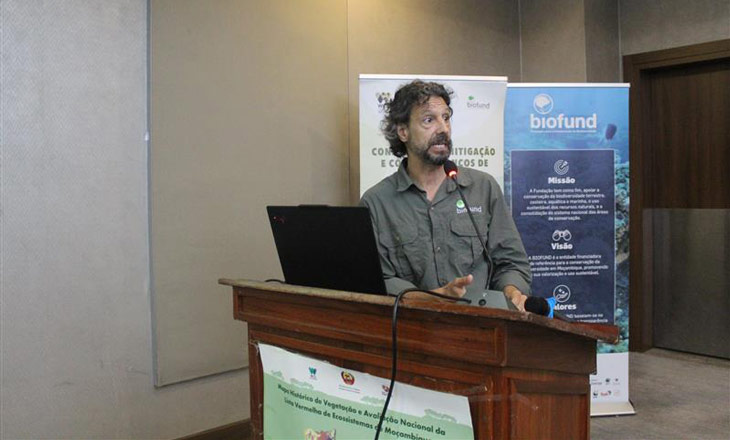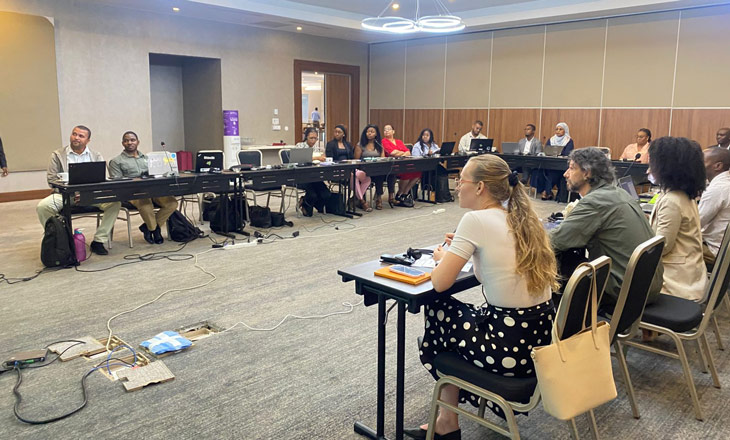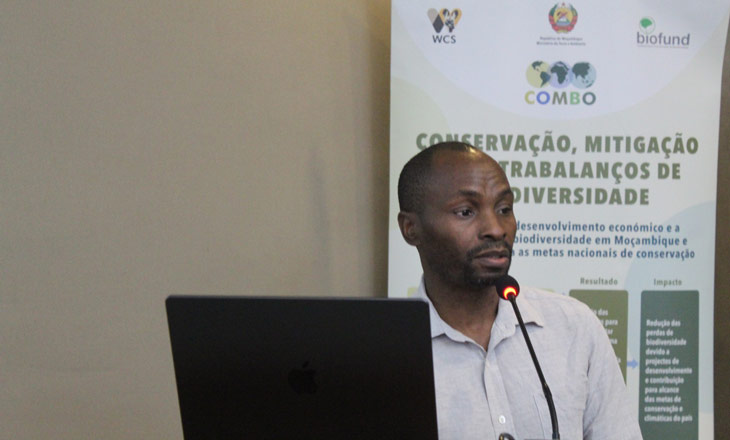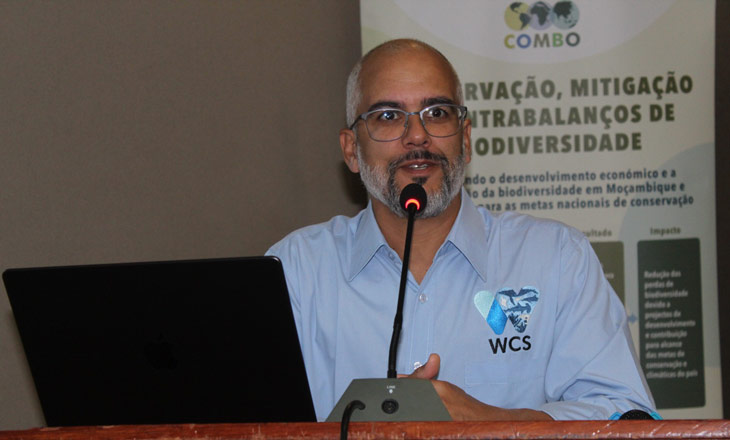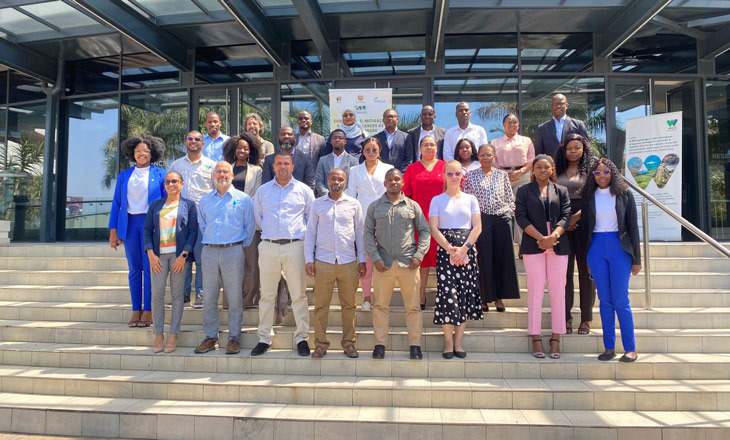Maputo, September 16, 2025 – The Ministry of Agriculture, Environment, and Fisheries (MAAP), through the National Directorate for Environment and Climate Change (DINAMAC), in partnership with the Wildlife Conservation Society (WCS) and the Foundation for the Conservation of Biodiversity (BIOFUND), within the scope of the COMBO+ Program, held a Financial Sector Training Workshop on environmental risks, licensing processes, and biodiversity offsets.
Published at 18/09/2025
COMBO+ program trains the financial sector on environmental risks and biodiversity
Since 2016, Mozambique has been consolidating legal and technical instruments to promote sustainable growth, notably through collaboration with the COMBO+ Program in creating procedures that enable the proper application of the Mitigation Hierarchy (MH) and Biodiversity Offsets. This joint work resulted in the approval of the Biodiversity Offsets Directive (Ministerial Decree No. 55/2022, of May 19), in accordance with Decree No. 54/2015, which regulates the Environmental Impact Assessment process.
The workshop was attended by 28 representatives from various sectors, including members of the government, the private sector, banks, and insurance companies. Among the institutions present were the Absa Bank, Millennium BIM, Standard Bank, BIG Bank, Moza Banco, Letshego, Arko Seguros, Holland Seguros, Horizonte Seguros, Metropolitano, Fidelidade, BNI, FUNAE, Britam, as well as representatives from MAAP, IFC, and partners such as BIOFUND.
During the event, participants attended a presentation by the Taskforce on Nature-related Financial Disclosures (TNFD), led by Alan Marini, who explained how to assess and integrate nature-related risks and opportunities, promoting financial flows aligned with positive outcomes for biodiversity.
This was followed by a presentation by Philisiwe Sibeko from the IFC, who addressed the integration of environmental and social standards in private investments, highlighting the importance of the financial sector in promoting responsible and sustainable investments.
The workshop aimed to reinforce the importance of environmental licensing, particularly biodiversity offset management plans, as an essential legal safeguard for compliance with national standards. By applying these requirements to its clients when granting credit, the financial sector plays a decisive role in ensuring that the country’s economic growth does not result in irreversible biodiversity losses.

